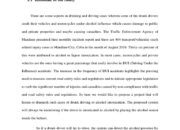In the panorama of modern scientific endeavor, the dynamic interplay between governance and discovery necessitates a meticulous examination of who truly holds the reins of innovation. The governance of science transcends mere regulatory oversight, encompassing ethical considerations, institutional frameworks, funding mechanisms, and the prevailing socio-political landscape. This intricate tapestry shapes the very foundation upon which scientific progress is erected, prompting an inquiry into the agents of influence in this vital domain.
At the crux of scientific governance lies the concept of power. Power manifests in various forms, from the authority wielded by governmental bodies to the sway held by funding organizations and academic institutions. Each of these entities exerts influence in unique ways, dictating not only what research is pursued but also the methodologies employed and the ethical implications that arise. In this context, the term “governing science” evokes a multifaceted discourse that merits rigorous exploration.
To dissect the essence of scientific governance, one must first consider the role of state-sponsored organizations and regulatory agencies. Governments often allocate substantial resources to scientific research, guided by national priorities, public needs, and, at times, geopolitical interests. The allocation of these resources is frequently predicated upon strategic objectives, such as national security, economic growth, and public health. This governance approach introduces an inherent bias, potentially stymying the exploration of unconventional avenues that may not align with state-sponsored agendas.
Moreover, the global landscape is replete with funding entities that exercise significant power over the direction of research. Private foundations, corporate sponsors, and philanthropic organizations often dictate the landscape of scientific inquiry through their financial contributions. The conditions attached to funding can subtly orient researchers toward specific outcomes, digital innovation, or technologies that align with donor interests. Consequently, the essence of inquiry may be unduly influenced, leading to the pervasiveness of certain paradigms at the expense of others.
In addition to these power structures, the institutional culture within academia plays a crucial role in shaping scientific discovery. Universities and research institutions, driven by metrics such as publication rates and grant acquisitions, create environments that reward particular types of research. The pursuit of tenure, prestige, and professional advancement often prioritizes projects that yield immediate results. Consequently, long-term, exploratory research—potentially perplexing and unorthodox—may be neglected, leaving the innovative fringes of science uncharted.
The interplay of societal values and scientific inquiry must also be acknowledged. Public perception and societal acceptance can drastically influence research agendas. Ethical dilemmas surrounding contentious topics, such as genetic editing or artificial intelligence, often invoke heated debates that can result in governmental or institutional restrictions. The tension between societal concerns and the quest for knowledge underscores the complex relationship between governance and scientific freedom.
As technology evolves, the paradigm of scientific governance is further complicated by the rise of interdisciplinary collaboration and global networks. The advent of big data, artificial intelligence, and open-access platforms fosters research that crosses conventional boundaries, engendering collective approaches to discovery. Yet, such collaborations also raise questions regarding intellectual property, authorship, and accountability. Who governs the collective efforts of an international research team? The convergence of diverse scientific traditions accentuates the need for robust frameworks that address the governance challenges of collaborative discovery.
The discussion of who governs science is incomplete without addressing the ethical imperatives that guide the scientific community. The promotion of transparency, accountability, and inclusivity is paramount in ensuring that science serves humanity as a whole rather than a select few. These ethical principles advocate for democratized science, wherein diverse perspectives are valued, and marginalized voices are amplified. The recognition of equity in science fosters an environment conducive to novel ideas and innovative discoveries that reflect the complexities of our global society.
Yet, the quest for ethical governance remains fraught with challenges. The clandestine nature of some research practices, coupled with the rapid pace of scientific advancements, often leads to ethical quandaries that can dwarf regulatory frameworks. Scientific misconduct, data manipulation, and the commodification of research present ongoing dilemmas that demand vigilant governance. The integrity of scientific inquiry hinges upon the establishment of rigorous ethical standards and collective accountability to safeguard its credibility.
Therefore, as we ponder the question of who holds the power of discovery, one must recognize the multifarious influences at play. The intersection of governmental authority, funding paradigms, institutional cultures, societal demands, and ethical considerations creates a complex web of governance that shapes scientific trajectories. This synthesis of perspectives invites curiosity, urging scholars, policymakers, and the general public to engage in this discourse and explore the implications of governance on the discovery process.
In conclusion, the power to govern science is not held by any singular entity but is distributed across a spectrum of stakeholders, each wielding their influence in distinct yet interconnected ways. A paradigm shift towards greater transparency, ethical rigor, and inclusivity in scientific governance is both necessary and beneficial. As society grapples with unprecedented challenges that necessitate scientific ingenuity, the quest to understand the dynamics of governance and discovery remains more critical than ever. By embracing a holistic understanding of who governs science, we can foster an environment that not only accelerates innovation but also ensures that scientific discovery serves the broader interests of humanity.












